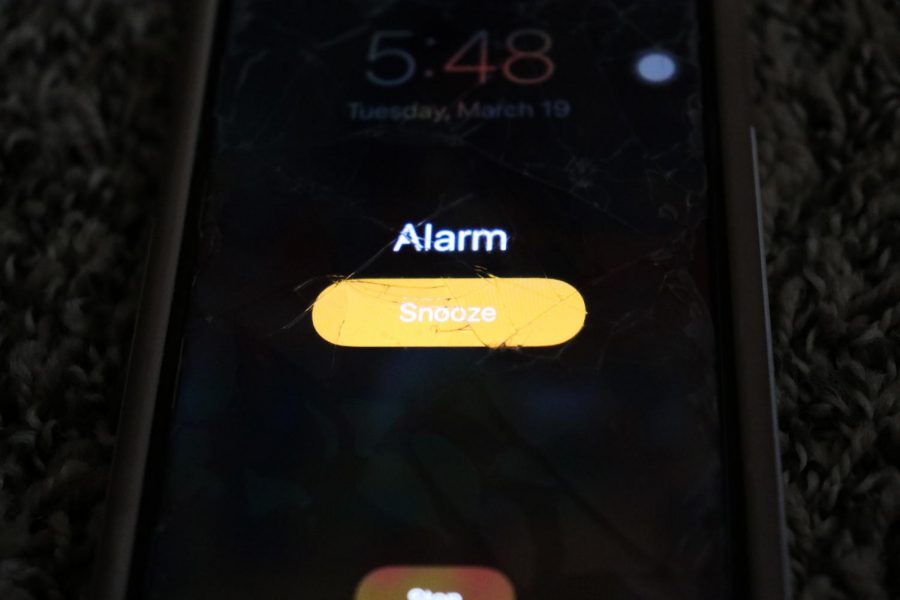Daylight savings should stick around in our state
The practice is no longer needed for its original purpose, offers benefits outside of its intention
JACK LEWIS-CLARKE | EVERGREEN PHOTO ILLUSTRATION
The time change of daylight saving may be jarring the first couple of days, but it’s a small price to pay for something that does so much. Getting rid of it would be even more jarring, and possibly eliminate the positive effects it has now.
March 20, 2019
Daylight saving time may seem like an outdated practice, but it still has its uses.
It lowers crime rates, helps stimulate the economy and allows people to be more active, giving it more reason to stay other than just as a tradition.
In 2012, about 40 percent of Americans stated that they think daylight saving time is worthless and many people petitioned to end this tradition, according to an article by Business Insider.
One proposal would have a worldwide time zone and change to a 13-month calendar. Another suggests dividing the U.S. into only two time zones two hours apart, also according to the Insider’s article.
Regardless, no one can agree on one real solution, and daylight savings still provides more benefits. The hour change can mess with one’s daily schedule, but it’s an easy adjustment.
Shannon Finnegan, a freshman majoring in animal science, knows she’ll adapt to the change just like everyone else.
“When we move the clocks forward I tend to sleep in and stay up later for the first few days,” Finnegan said. “[But] my body is able to adjust and I’m back to my normal schedule of waking up.”
The intention of daylight saving may not be practical, but it has other useful purposes. It may save just a little energy, but the extended days stimulates retail, tourism and the hospitality industry. At the end of daylight saving time, Los Angeles saw a 3.5 percent increase in spending. Crime rates typically go down as well, one study showing that robbery went down by 51 percent during daylight savings, according to a study by the Stanford Institute for Economic Policy Research.
It’s not only nice to have more time in the daylight, but it’s also a benefit to our health as well. The summer days are longer and allow more time in the sun.
People can do more activities outside and enjoy the nice weather, getting exercise or at least vitamin D from sunlight and fresh air if they are not active.
Originally created to save energy during wartime, daylight saving has existed in the U.S. since 1918.
Laws signed in 1966 to allow each state to decide if they want to participate in daylight savings and some in Washington recently looked to put them to use.
But Washington should not try to change what’s already a good thing.
Daylight saving time might have outgrown its original use, but it still benefits our society. Getting rid of daylight saving time would unnecessarily change our lifestyles.
Plans proposed to change every time zone just to get rid of what’s at worst inconvenience are impractical, so the best plan is to let it continue to benefit us.









Anonymous • Mar 21, 2019 at 11:16 am
A single study showing a decrease in crime rate during daylight-saving time should not be a factor in any political decision on whether to recognize (or not) daylight-saving. Besides, if that is the only argument that we are hanging the thread on, then by all means, remove daylight-saving.
Daylight-saving makes absolutely no sense in the modern world. Why do we need to keep resetting clocks every November/March? That just ruins the sleep cycle and causes unnecessary headaches. Most of the world does not do daylight-saving, why should we? Have crimes been rampant in the countries that don’t recognize it simply for that reason?